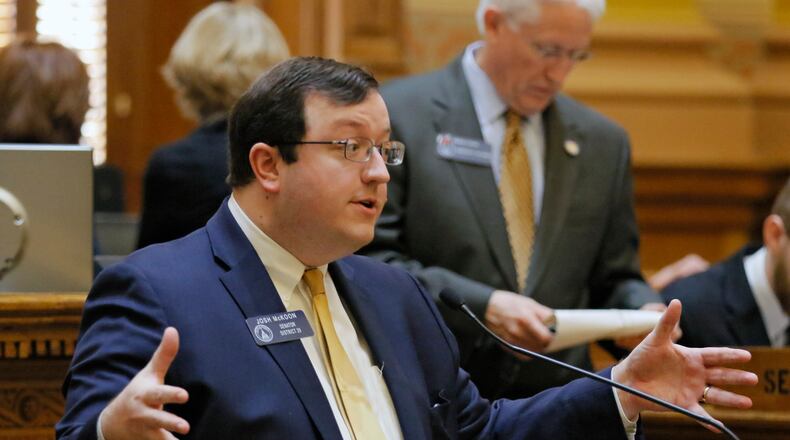A bill that would close polls in Atlanta an hour earlier and create party primary races during special elections has cleared the Georgia Senate.
State Sen. Josh McKoon, R-Columbus, said having polls in Atlanta close at 8 p.m. while voting ends at 7 p.m. at other Georgia precincts confuses voters.
Several Atlanta Democrats spoke against the bill, saying the loss of an hour of voting time reduces access for city residents. All of the Senate Democrats voted against the measure, Senate Bill 309, which passed 35-19.
Atlanta is the only jurisdiction in Georgia where the polls close at 8 p.m.
McKoon said voters will still have ample time to access the polls and changing the time Atlanta polls close to 7 p.m. will ease confusion for people who live in Fulton County but are not city residents.
Democrats said every year bills are introduced that chip away at access to elections, citing the reduction in the number of days Georgia allows for early in-person voting from 45 days to 21 days as an example.
State Sen. Nan Orrock, D-Atlanta, asked if McKoon wanted to shorten the hours in Atlanta because most of the voters are Democrats.
McKoon insisted that wasn’t his motivation.
“This is to get uniformity and prevent confusion,” he said. “This will reduce voter confusion and increase participation and decrease the number of people who are turned away at the polls.”
The bill also would create a primary system during special elections held after a lawmaker leaves office in the middle of his or her term.
McKoon first spoke of his desire to introduce the bill after a November special election resulted in two Democrats emerging with the top votes in a race to replace a Republican.
He said adding party primary races would give Georgia voters more choices in who would ultimately represent them. State law requires a candidate receive more than 50 percent of the ballots cast to win a race.
“This would make sure that voters have a greater choice in the final round of the election,” McKoon said.
McKoon is running to be Secretary of State, whose office oversees the state’s elections.
About the Author
Keep Reading
The Latest
Featured


